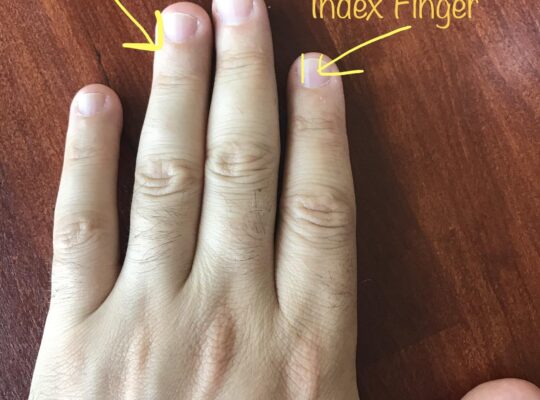Who would win in a fight at age twenty one: you or your grandpa? Probably not you. Shocking data overwhelmingly says men are weaker than ever. Over the last few decades, there has been a growing concern about the physical strength of men. Many believe that modern men are weaker than their predecessors, and that this is a sign of a decline in masculinity. While this may seem like an exaggeration, the statistics tell a different story.
In fact, recent studies have shown that men today are, on average, weaker than men of the same age from thirty years ago. This raises important questions about the causes and implications of this trend. In this article, we’ll delve into the shocking statistics about men’s physical strength and explore the factors that may be contributing to this concerning phenomenon.
Body Weight Shows We Are Weaker Than Ever
We aren’t as lean as our ancestors. Fast food, smartphones, and easily accessible services have all made us fatter than our grandparents. According to data from the National Health and Nutrition Examination Survey, the prevalence of obesity among men aged 20-39 increased from 11.4% in the 1950s-1960s to 33.3% in 2015-2016. Additionally, data from the National Health and Nutrition Examination Survey says the average body mass index (BMI) among men aged 20-39 increased from 25.2 in the 1950s-1960s to 29.1 in 2015-2016. When you’re not lean, you don’t look, feel, or function as well as you should.

Weaker Than Ever Mental Health
Sadly (no pun intended), today’s man is depressed. A study published in JAMA Network Open in 2019 found that the prevalence of depression among men has increased from 2.6% in the 1960s to 6.2% in 2017-2018. On top of this, the modern man is worried about the future. The Journal of Abnormal Psychology published a study in 2019 that found levels of anxiety among college students have increased by 5-6% per decade since the 1950s.
These factors horrifically manifest themselves in suicide rate. According to data from the Centers for Disease Control and Prevention, the suicide rate among men increased by 25.4% from 1950 to 2018. Multiple factors can negatively impact mental health, and it seems we collectively aren’t doing much about it.
Reproductive Health
It’s normal for testosterone levels to decline as you get older, but for some reason, there’s been a population-level drop with each generation since the 70’s. On average, Gen Z-ers and millennials have significantly lower testosterone levels compared to their predecessors. A study published in the Journal of Clinical Endocrinology & Metabolism in 2007 found that testosterone levels in men have decreased by about 1% per year since the 1980s.
Moreover, a study published in the Human Reproduction Update in 2020 found that sperm counts have declined by more than 50% in the past 40 years (from 99 million per milliliter in 1973 to 47 million per milliliter in 2011).
To make matters worse, according to data from the World Bank, the total fertility rate (TFR) in the US decreased from 3.47 children per woman in 1950 to 1.71 children per woman in 2020. That’s a full 50% drop in seventy three years!
Relationship Success
If you’ve got a large chunk of society who is overweight, depressed, and lacking testosterone, what are the odds their relationships will thrive? Naturally, the result is less babies being made, and more relationships falling apart.
Marriages with less sex and no children also have a higher tendency to fail. According to data from the National Center for Health Statistics, the divorce rate among men increased from 2.5 per 1,000 population in 1950 to 10.8 per 1,000 population in 2019. This makes sense, as couples without children divorce more often than couples that have at least one child.

Being a Stronger Man
None of these statistics are at all appealing. So, what can you do to avoid being a fat, estrogen-soaked infertile, depressed mess? It all starts with knowing what your mission is, and working towards it every day. The mission you’re on will likely change based on your life stage, but it will always serve as your compass.
Use that mission to keep yourself focused on the plan, and as a result you’ll develop discipline as you force yourself to stick with it. Once the mission is clear and the plan is in place, emphasize self care. This means regular workouts, doctor’s visits, and healthy eating. Continuously work to improve your wellness, and minimize behaviors that will make you sick. Cut toxic substances like alcohol, nicotine, narcotics, processed foods and fast food restaurants. You’ll look and feel better as a result.
Finally, surround yourself with uplifting people who support your mission. Simultaneously, cut the energy vampires. This includes toxic girlfriends, downer friends, and disrespectful family members. If a job is crushing your soul, find a new one. Life is too short to be ruined by negative people and experience. Optimize your health, relationships, and time to be the strongest version of yourself.
-Your Big Bro















